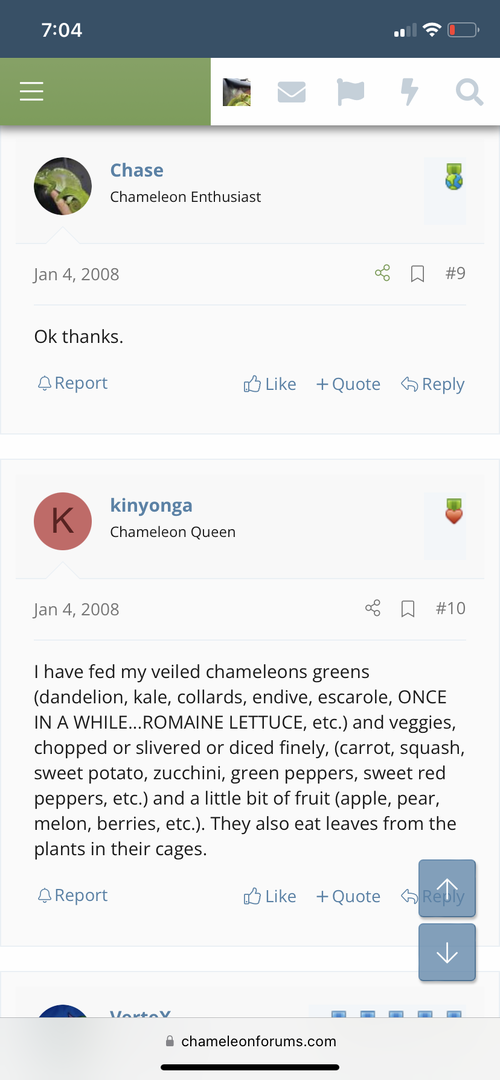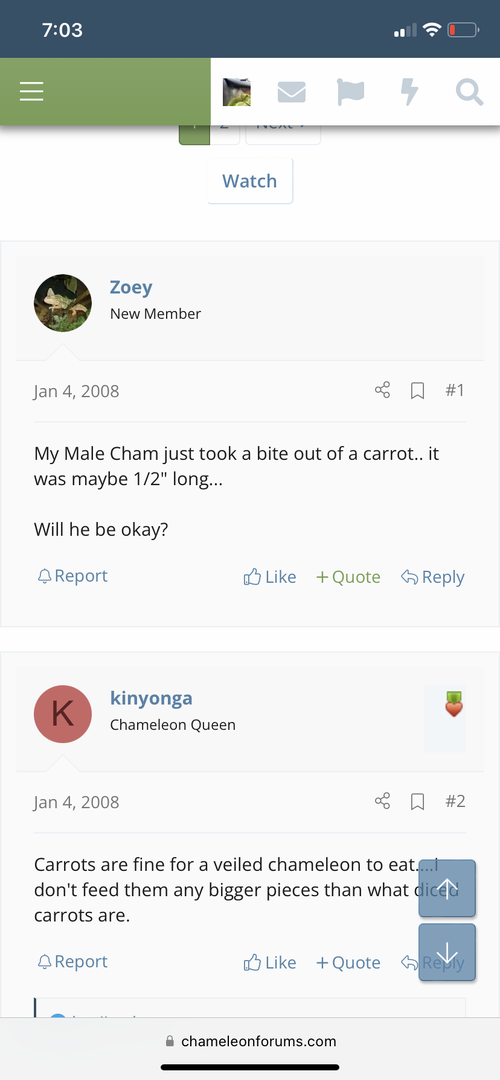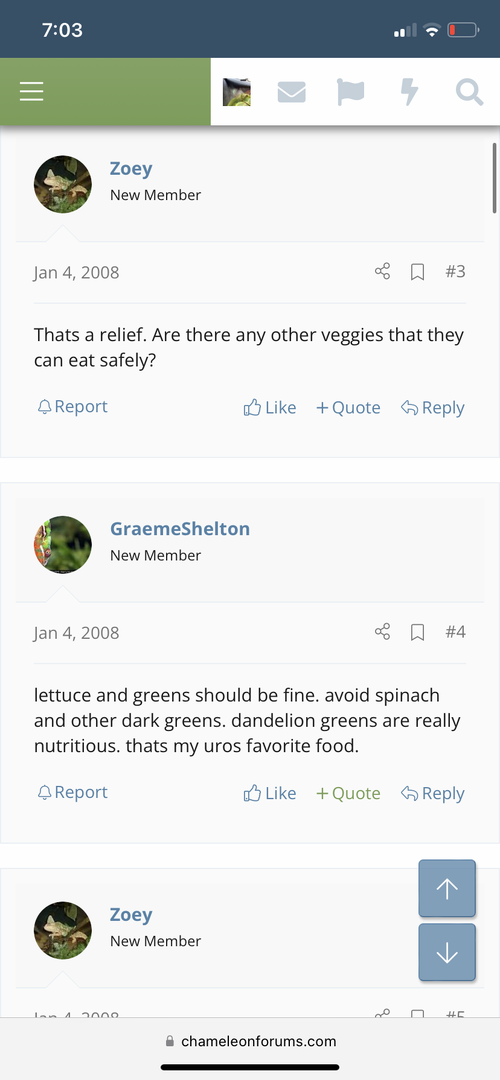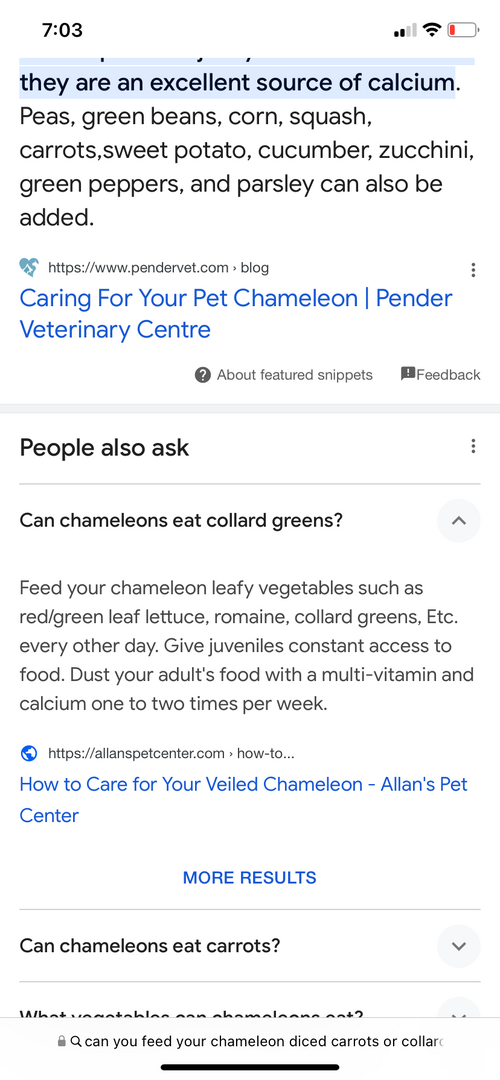You have received great info from @MissSkittles.
No worries on not feeding veg or fruit. This is actually NOT recommended for chameleons. While they may eat their plants you should never offer veg and specifically never give fruit as their bodies do not break either down since they are not omnivores. Their diet should consist of properly gutloaded and supplemented insects.
No worries on not feeding veg or fruit. This is actually NOT recommended for chameleons. While they may eat their plants you should never offer veg and specifically never give fruit as their bodies do not break either down since they are not omnivores. Their diet should consist of properly gutloaded and supplemented insects.















